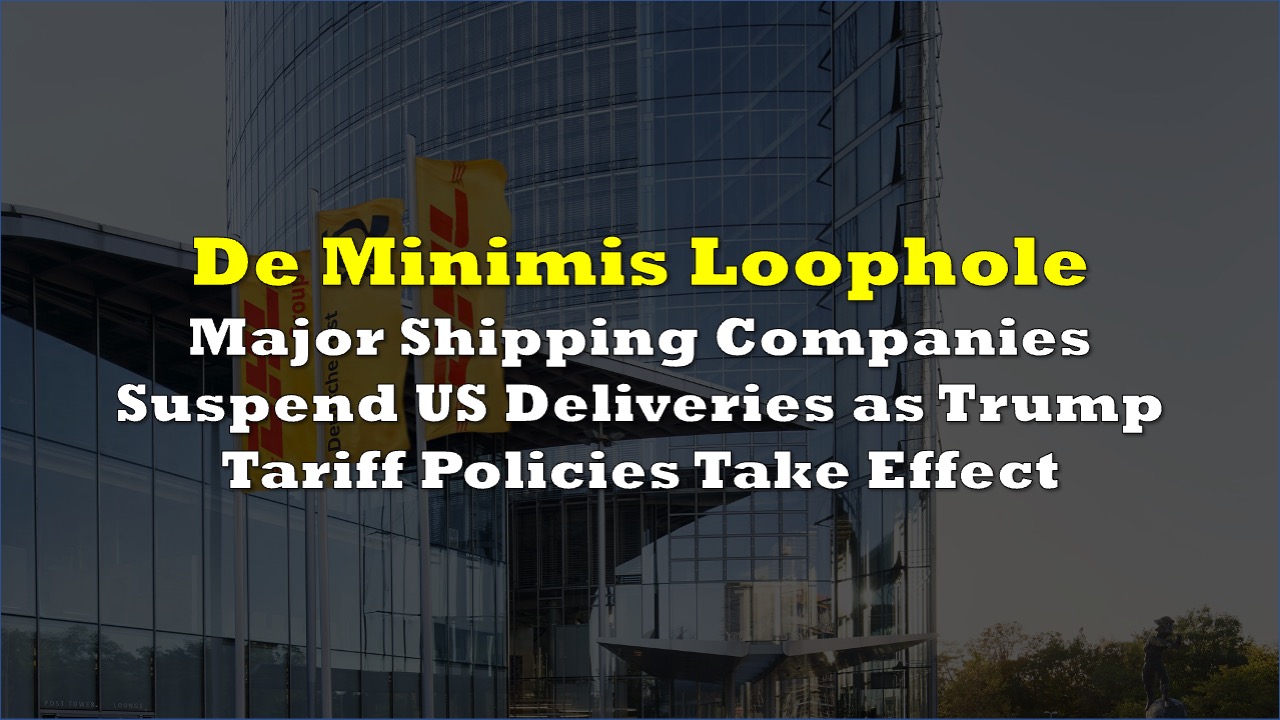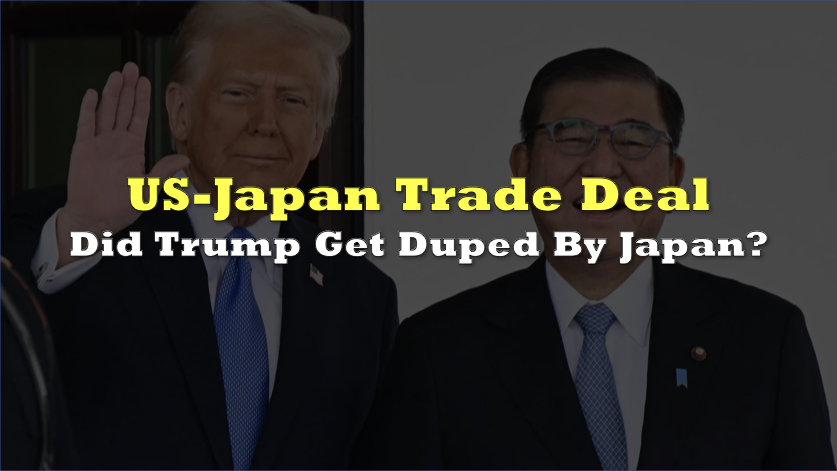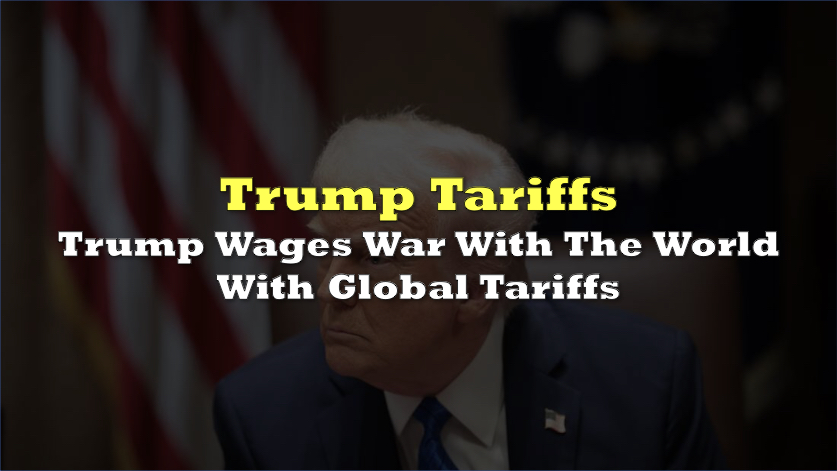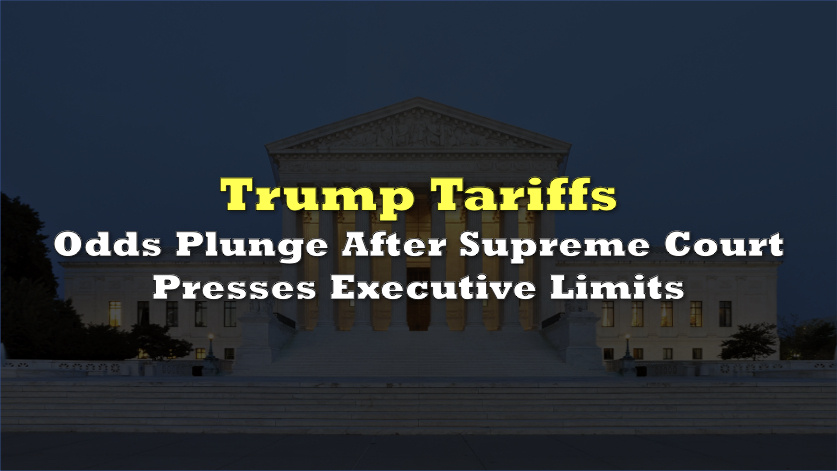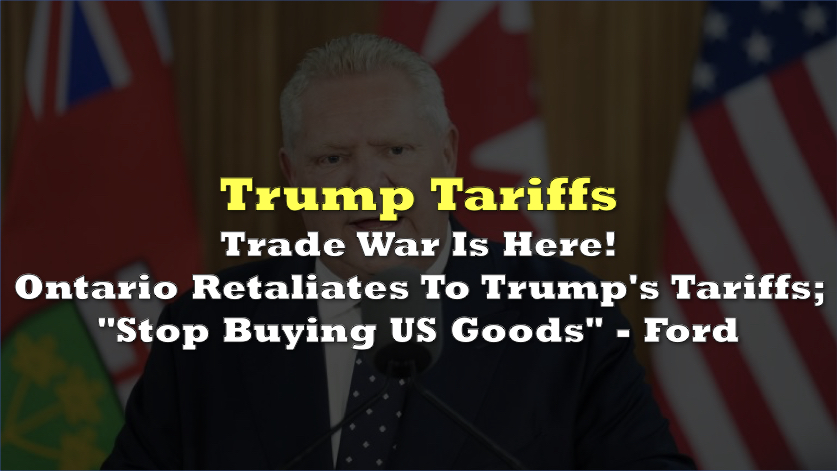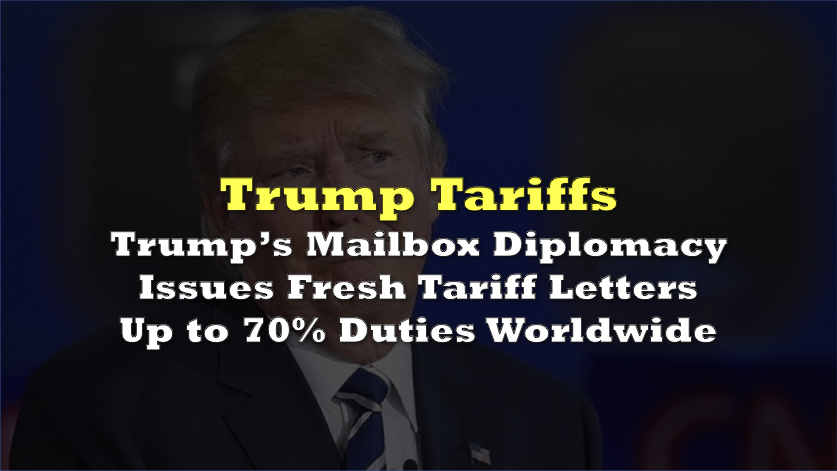Dozens of international postal services and major shipping companies, including DHL, are suspending package deliveries to the United States as new tariff policies eliminate a key trade exemption, disrupting global commerce and raising costs for American consumers and businesses.
The suspensions began as the Trump administration’s elimination of the “de minimis” exemption takes effect Thursday, ending duty-free treatment for shipments valued at $800 or less. The change affects everything from cosmetics to crafts, with some businesses warning they may be forced to close.
Major carriers, including DHL, Britain’s Royal Mail, Swiss Post, Japan Post, and postal services in Germany, France, Spain, Australia, India, and Singapore, have announced temporary suspensions of package deliveries to the US. Many cite unclear implementation procedures and insufficient time to establish new customs processing systems.
BREAKING: Trump’s reckless tariff stunt just broke the mail.
— Ed Krassenstein (@EdKrassen) August 24, 2025
By killing the long-standing duty-free rule on small imports, he’s triggered a worldwide backlash that going to be devastating for America.
Postal services in Germany, Denmark, Sweden, Italy, France, Austria, the UK,… pic.twitter.com/utsWuvZXh8
“Key questions remain unresolved,” DHL Group stated in a press release, “particularly regarding how and by whom customs duties will be collected in the future, what additional data will be required, and how the data transmission to the US Customs and Border Protection will be carried out.”
Japan Post just announced they will no longer deliver mail to the United States, joining Germany, Austria, Denmark, Italy, France, and Sweden.
— derek guy (@dieworkwear) August 25, 2025
The Austrian Post said the “tightening of regulations poses major challenges for all postal companies worldwide when shipping goods to the USA.”
Closing the de minimis loophole is part of President Donald Trump’s aggressive tariff strategy. Trump first ended the exemption for China and Hong Kong in May, citing national security concerns related to fentanyl smuggling, then extended it globally in July.
Read: Trump Closes De Minimis Loophole for All Countries, Ending Duty-Free Shipping
Under Trump’s broader tariff regime, countries now face “reciprocal tariffs” ranging from 10% to over 40%, with these duties stacking on top of existing trade penalties. For select Chinese products, total tariff rates can reach 130%.
The White House justified the policy by calling de minimis treatment a “catastrophic loophole” used to “evade tariffs and funnel deadly synthetic opioids” into the country.
The policy change affects an enormous volume of international commerce. US Customs and Border Protection processes over 4 million de minimis shipments daily, with the total growing from 134 million shipments in 2015 to over 1.36 billion in 2024.
Chinese retailers dominated this trade, accounting for about 60% of de minimis shipments, leading discount platforms like Temu and Shein to restructure their US operations earlier this year.
Under the new rules, businesses face flat duties ranging from $80 to $200 per item, depending on their country’s tariff rate, potentially crushing profit margins for low-value imports. Korean cosmetics brand Olive Young announced 15% duties will now apply to all US orders “regardless of the purchase amount,” while a UK yarn company suspended US shipments entirely, estimating 50% cost increases.
The administration frames the policy as protecting American workers and combating trade deficits, but critics argue it will primarily raise costs for US consumers while creating logistical chaos.
Personal gifts between individuals valued under $100 and documents remain exempt from the new duties. Commercial express services like DHL Express continue operating, though at higher cost structures than postal delivery.
The shipping suspensions are expected to be temporary as companies develop new processing systems, but the timeline for resumption remains unclear.
Information for this story was found via the sources and companies mentioned. The author has no securities or affiliations related to the organizations discussed. Not a recommendation to buy or sell. Always do additional research and consult a professional before purchasing a security. The author holds no licenses.

